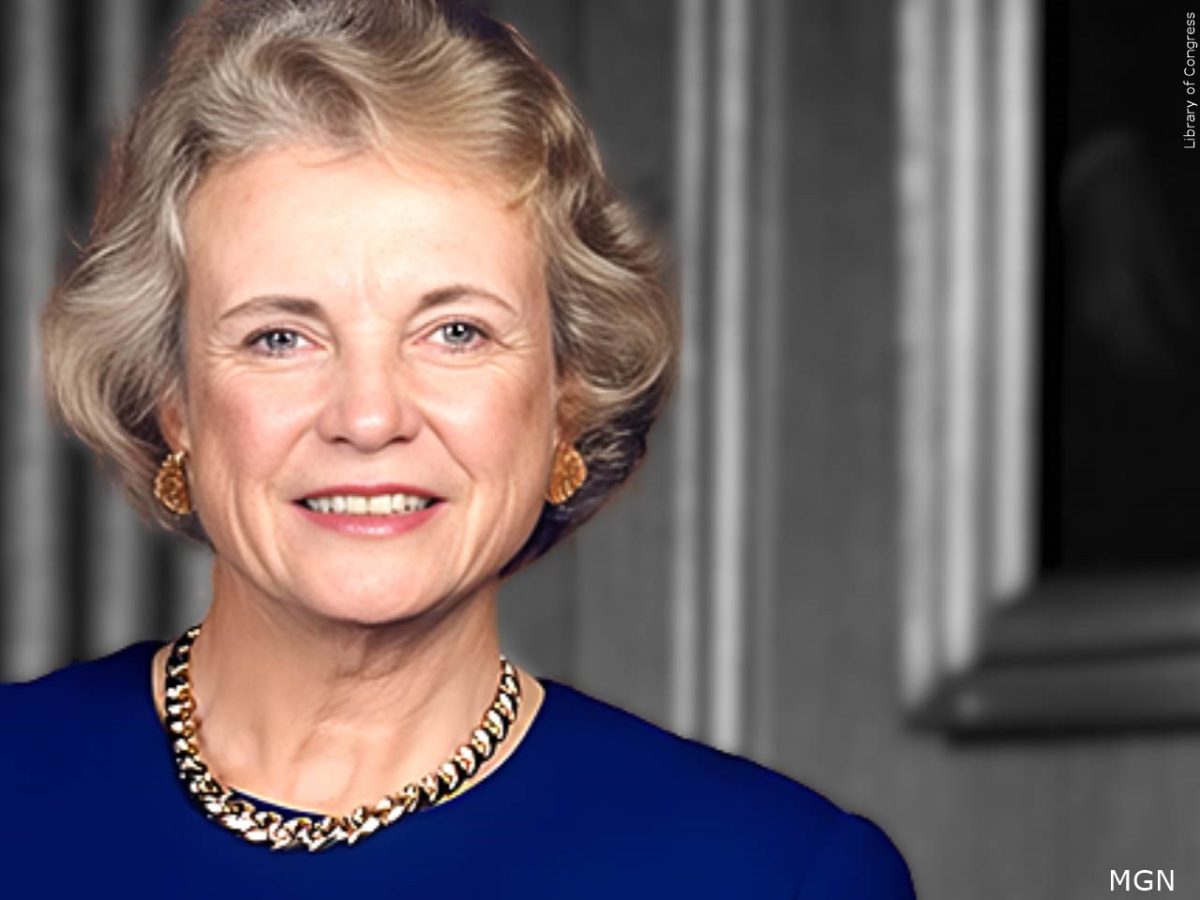Sandra Day O’Connor, the first woman on the United States Supreme Court, passed away at 93. As a thriving force for good, a significant amount of the progressiveness in the country can be attributed to O’Connor. Her impact on the American people was so incredible that she was called the most powerful woman in America because of her groundbreaking work. During the period of time of her tenure on the Supreme Court, the court was often referred to as the O’Connor Court.
A trailblazer in the nation in the discussion of polarizing topics, like affirmation actions, abortion, gender discrimination and voting rights, without O’Connor’s work, progress in the nation would have likely moved significantly slower.
President Ronald Reagan made good on his campaign promise to the American people to appoint the first female justice to the Supreme Court in 1981, 192 years after it was established. O’Connor broke through boundaries at a time when it was difficult to believe that any woman could be appointed to the Supreme Court and make the strides and progress that she made.
“His decision was as much a surprise to me as it was to the nation as a whole,” O’Connor said. “But Ronald Reagan knew that his decision wasn’t about Sandra Day O’Connor; it was about women everywhere. It was about a nation that was on its way to bridging a chasm between genders that had divided us for too long.”
With a humble beginning in El Paso, Texas, O’Connor’s family owned a cattle ranch. Her experiences at the Lazy B Ranch shaped her character and work ethic. O’Connor went on to attend Stanford University and achieved the position of senior class president. She obtained two degrees: a bachelor’s degree in economics in 1950 and a law degree in 1952. During her time at Stanford, O’Connor was a member of the board of editors for the Stanford Law Review, a position considered to be one of the highest honors for a law student.
Prior to becoming a justice, O’Connor worked as a deputy county attorney and a civilian attorney. She worked her way up to becoming a state senator and the Republican majority leader in the state senate in 1970, making her the first woman in the country to hold that position.
Upon entering the judicial branch of government in 1974, O’Connor became a county judge in the Maricopa County Superior Court then progressed to an appointment in the Arizona Court of Appeals. During this time, O’Connor founded the Arizona Women Lawyers Association and the National Association of Women Judges.
Even before her Supreme Court appointment, O’Connor was making history at the forefront of the nation. At the time, no other woman in the nation held such high positions as she did.
The Sandra Day O’Connor Institute, founded in 2009, focuses on advancing civil discourse, civic engagement and civics education.
“The vision of the Sandra Day O’Connor Institute is to create a nation where important policy decisions affecting our future are made through a process of critical analysis of facts and informed participation of all citizens,” the website wrote.
The institute offers numerous programs for a variety of age groups: O’Connor Ambassadors Civics and Debate Club, a high school program that provides a space for civic engagement and debate, Camp O’Connor, an experiential civics education program for middle school students, Constitution Series: Equality and Justice For All, free, online public forums that provides opportunity for civil discourse, and O’Connor U, an online, educational multigenerational initiative that offers civic engagement webinars, podcasts, interactive online lectures, and civics education digital experiences, to name a few programs established by the O’Connor Institute.
O’Connor has championed the values of justice and equality through her career and especially during her 25 years on the Supreme Court.
“It is the body to which all Americans look for the ultimate protection of their rights,” said O’Connor. “It is to the U.S. Supreme Court that we all turn when we seek that which we want most from our government: equal justice under the law.”


